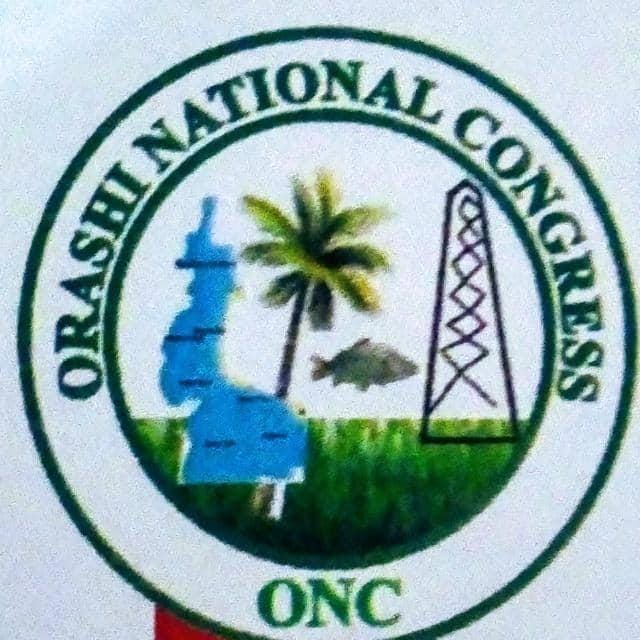The Nigerian Exchange (NGX) experienced a remarkable rally in August 2025, driven primarily by standout performances in the insurance and industrial sectors. This surge has propelled the benchmark NGX All-Share Index (ASI) to new heights, bolstered market capitalization, and ignited optimism among investors as the market edges closer to the historic ₦100 trillion threshold. The rally, characterized by significant gains in low-priced, high-volume insurance stocks and robust advances in industrial counters, reflects a confluence of increased liquidity, investor rotation into growth segments, and renewed confidence in Nigeria’s economic and corporate outlook. However, analysts have cautioned that the rapid pace of these gains could lead to profit-taking, emphasizing the need for sustained macroeconomic stability and structural reforms to maintain long-term growth. This article explores the dynamics of the August rally, the factors driving it, and the broader implications for Nigeria’s capital market.
A Stellar August Performance
The NGX All-Share Index (ASI), a key barometer of market performance, climbed to 145,754.91 points in the week ending August 8, 2025, marking a weekly increase of 3.18 percent. This upward trajectory translated into a significant boost in market capitalization, which rose to ₦92.2 trillion, bringing the NGX tantalizingly close to the ₦100 trillion milestone. The rally was broad-based, with notable contributions from the insurance and industrial sectors, which emerged as the month’s standout performers.
The insurance sector, in particular, outpaced all others, driven by brisk demand for low-priced, high-volume counters that attracted both retail and institutional investors. Mutual Benefits Assurance led the charge, posting an impressive 60.44 percent gain to top the performance table. Close behind were AIICO Insurance, which surged by 59.82 percent, and Royal Exchange, which gained 59.33 percent. These remarkable advances pushed the NGX Insurance Index up by more than 41 percent in a single week, signaling a surge in speculative interest and fresh liquidity inflows into the sector.
Industrial stocks also played a pivotal role in the rally, with several counters recording triple-digit gains. UACN, a prominent player in the industrial goods sector, rallied by an astonishing 115.9 percent in one week, making it one of the NGX’s most striking movers. Other notable performers included Academy Press, which surged by 78.3 percent, ABC Transport, up 65.8 percent, and Eunisell, which gained 62.2 percent. The NGX Industrial Goods Index advanced by more than 10 percent week-on-week, reflecting strong investor interest in the sector.
Consumer goods stocks also contributed to the bullish sentiment, with the NGX Consumer Goods Index rising by 8.27 percent. The broad-based nature of the rally, coupled with increased trading activity, underscored the growing confidence in Nigeria’s equity market and its potential for further growth.
Trading Activity and Market Breadth
The August rally was accompanied by a significant uptick in trading activity, reflecting broader investor participation and heightened market enthusiasm. According to NGX data, both trading volume and value rose by more than 30 percent compared to the preceding week, indicating robust demand across key sectors. This surge in turnover suggests that new funds are entering the market, fueling the rally and sustaining upward momentum.
Market breadth further reinforced the positive tone, with 66 stocks appreciating in value, 41 declining, and 47 closing unchanged. This favorable ratio of advancers to decliners highlights the widespread optimism that characterized the market in August. The combination of increased trading volumes, strong sector performance, and positive market breadth paints a picture of a vibrant and dynamic market environment, driven by both retail and institutional investors.
Drivers of the Rally
Analysts at Comercio Partners, a leading investment firm, attributed the August upswing to three key factors: increased liquidity inflows, investor rotation into growth segments, and improved market sentiment. These factors have worked in tandem to create a favorable environment for equities, particularly in the insurance and industrial sectors.
Liquidity Inflows: The influx of new funds into the Nigerian equity market has been a critical driver of the August rally. These inflows, which reflect growing investor confidence, have boosted trading activity and supported price appreciation across multiple sectors. The availability of fresh capital has enabled investors to take positions in undervalued stocks, particularly in the insurance sector, where low-priced counters have attracted significant interest.
Rotation into Growth Segments: Investors have increasingly rotated their portfolios toward growth-oriented sectors, such as insurance and mid-cap industrial stocks, which offer strong near-term return potential. This shift reflects a strategic move to capitalize on undervalued assets with significant upside, as opposed to more traditional safe-haven investments like blue-chip stocks or fixed-income securities.
Improved Sentiment: Sustained confidence in Nigeria’s economic outlook and corporate earnings has underpinned demand for equities. Positive macroeconomic indicators, such as stable oil prices and a more predictable exchange rate, have bolstered investor optimism. Additionally, strong corporate earnings reports from key sectors, including insurance and manufacturing, have reinforced the belief that Nigerian companies are well-positioned for growth.
The Role of the Insurance Industry Reform Act
A significant catalyst for the insurance sector’s stellar performance has been the implementation of the Insurance Industry Reform Act, which has introduced new regulations aimed at strengthening compulsory coverage across key segments of the economy. According to stockbroker Aruna Kebira, speaking to Nigerian NewsDirect, the Act has created new revenue streams for insurance companies, positioning the sector as one of the unexpected winners of 2025.
The Insurance Industry Reform Act mandates that developers insure construction projects, ensuring greater financial protection for stakeholders in the real estate and infrastructure sectors. Additionally, the Act aligns with the ECOWAS Brown Card scheme, which allows transporters across the West African coast to operate under a unified insurance framework. These provisions have expanded the scope of compulsory insurance, driving demand for insurance products and boosting the profitability of companies in the sector.
Kebira noted that the reforms have sparked renewed investor interest in insurance stocks, particularly in low-priced counters that were previously trading below ₦2 per share. Companies like NEM Insurance and Custodian & Allied, which trade above ₦20, have remained strong performers, while mid-tier insurers such as Sovereign Trust, Royal Exchange, and Mutual Benefits have seen significant appreciation due to the compulsory insurance policies. This resurgence has positioned the insurance sector as a safe haven for investors, even as other parts of the capital market have faced pressure from fund migration to the money market.
The combination of regulatory reforms, stable oil prices, and a predictable exchange rate has created a favorable backdrop for insurers to expand their business portfolios and improve profitability. As a result, the sector has emerged as a key driver of the NGX’s August rally, with potential for further growth as the reforms take root.
Industrial and Consumer Goods Sectors: A Broader Rally
While the insurance sector led the charge, the industrial and consumer goods sectors also played a significant role in the August rally. The industrial goods sector, in particular, benefited from strong performances by companies like UACN, which posted triple-digit gains, and Eunisell, which saw robust investor demand. These advances reflect growing confidence in Nigeria’s industrial base, which has been bolstered by improvements in infrastructure, manufacturing, and logistics.
The consumer goods sector, while not as dominant as insurance or industrial stocks, also contributed to the rally, with the NGX Consumer Goods Index rising by 8.27 percent. Companies in this sector have benefited from increased consumer spending and a more stable economic environment, which have supported demand for consumer products and services. The performance of stocks like Academy Press and ABC Transport further underscores the broad-based nature of the rally, as investors sought opportunities across multiple sectors.
Cautions and Challenges Ahead
Despite the bullish sentiment, analysts have cautioned that the rapid pace of the August rally could lead to profit-taking in the coming weeks. With valuations in certain areas, particularly the insurance sector, appearing stretched, a pullback cannot be ruled out. Investors who have capitalized on the recent gains may look to lock in profits, potentially leading to short-term volatility in the market.
Market watchers have also emphasized that the sustainability of the rally will depend on several factors, including consistent macroeconomic stability, an effective monetary policy stance, and ongoing structural reforms. Nigeria’s economy has faced significant challenges in recent years, including inflationary pressures, currency volatility, and infrastructure deficits. While recent improvements in oil prices and exchange rate stability have provided a boost, the government must continue to implement reforms to address these structural issues and create a conducive environment for sustained market growth.
The migration of funds to the money market, driven by attractive yields on fixed-income securities, has also posed a challenge for the equity market. However, the resilience of insurance stocks, supported by the Insurance Industry Reform Act, suggests that the sector may continue to attract investor interest even in the face of competing investment options.
Broader Implications for the Nigerian Capital Market
The August rally on the NGX has significant implications for Nigeria’s capital market and its role in the broader economy. The surge in market capitalization to ₦92.2 trillion reflects growing investor confidence and the potential for the NGX to become a leading financial hub in Africa. The approach to the ₦100 trillion threshold is a symbolic milestone that could further enhance the market’s visibility and attract foreign investment.
The strong performance of the insurance and industrial sectors highlights the diversity of opportunities within the Nigerian equity market. These sectors, often overshadowed by oil and gas or banking, have demonstrated their potential to drive growth and deliver value to investors. The Insurance Industry Reform Act, in particular, has positioned the insurance sector as a key area of focus, with the potential to reshape the industry and contribute to economic development.
For investors, the rally underscores the importance of strategic portfolio allocation and the need to identify undervalued assets with strong growth potential. The rotation into insurance and mid-cap industrial stocks reflects a broader trend of seeking opportunities in sectors that may have been overlooked in the past. As the market continues to evolve, investors will need to remain vigilant, balancing the pursuit of returns with the risks of overbought conditions and potential volatility.
Conclusion
The August 2025 rally on the Nigerian Exchange, driven by standout performances in the insurance and industrial sectors, has marked a vibrant chapter in the market’s history. The NGX All-Share Index’s rise to 145,754.91 points and the increase in market capitalization to ₦92.2 trillion reflect a surge in investor optimism and the growing appeal of Nigerian equities. The insurance sector, bolstered by the Insurance Industry Reform Act, has emerged as a key driver of growth, with companies like Mutual Benefits Assurance, AIICO Insurance, and Royal Exchange posting impressive gains. Industrial counters, led by UACN, have also contributed to the rally, supported by broader improvements in Nigeria’s economic outlook.
While the rally has lifted the market to historic highs, analysts have urged caution, noting the potential for profit-taking and the importance of sustained macroeconomic stability. The resilience of the insurance sector, combined with the strength of industrial and consumer goods stocks, suggests that the NGX is well-positioned for further growth, provided structural reforms and favorable economic conditions persist. As Nigeria’s capital market continues to evolve, the August rally serves as a testament to the opportunities and challenges that define one of Africa’s most dynamic financial landscapes.






